
The Society for Psychical Research (SPR) is a nonprofit organisation in the United Kingdom. Its stated purpose is to understand events and abilities commonly described as psychic or paranormal. It describes itself as the "first society to conduct organised scholarly research into human experiences that challenge contemporary scientific models." It does not, however, since its inception in 1882, hold any corporate opinions: SPR members assert a variety of beliefs with regard to the nature of the phenomena studied.

Algernon Borthwick, 1st Baron Glenesk JP, known as Sir Algernon Borthwick, Bt, between 1887 and 1895, was a British journalist and Conservative politician. He was the owner of the Morning Post.

Richard Edmund St Lawrence Boyle, 9th Earl of Cork and 9th Earl of Orrery KP, PC, styled Viscount Dungarvan between 1834 and 1856, was a British courtier and Liberal politician. In a ministerial career spanning between 1866 and 1895, he served three times as Master of the Buckhounds and twice as Master of the Horse.

William John Monson, 1st Viscount Oxenbridge PC, known as The Lord Monson between 1862 and 1886, was a British Liberal politician. He served as Captain of the Yeomen of the Guard between 1880 and 1885 and in 1886 under William Ewart Gladstone.
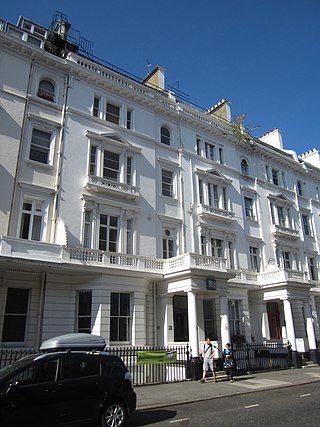
The College of Psychic Studies is a non-profit organisation based in South Kensington, London. It is dedicated to the study of psychic and spiritualist phenomena.

William Monsell, 1st Baron Emly, PC was an Anglo-Irish landowner and Liberal politician. He held a number of ministerial positions between 1852 and 1873, notably as President of the Board of Health in 1857 and as Postmaster General between 1871 and 1873.
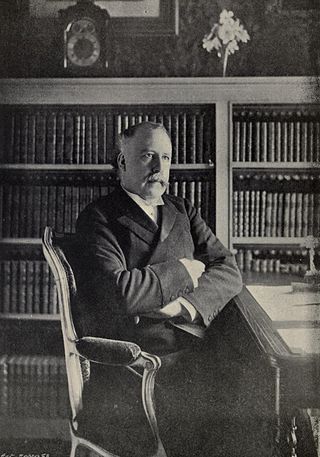
George William Erskine Russell PC was a British biographer, memoirist and Liberal politician.

Edward Hugessen Knatchbull-Hugessen, 1st Baron Brabourne, known as E. H. Knatchbull-Hugessen, was a British Liberal and later Conservative politician. He served as Under-Secretary of State for the Home Department under Lord Russell in 1866 and under William Ewart Gladstone from 1868 to 1871 and was also Under-Secretary of State for the Colonies under Gladstone from 1871 to 1874. In 1880 he was elevated to the peerage as Baron Brabourne.
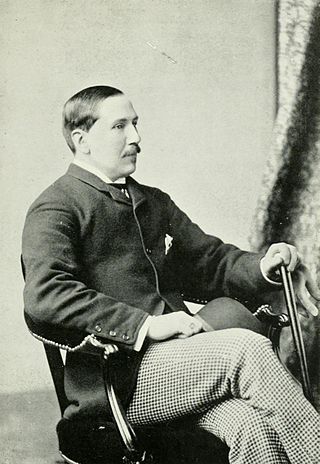
Sir Edward Walter Hamilton,, also known as Eddy Hamilton, was a British political diarist and Joint Permanent Secretary to the Treasury.
Events from the year 1874 in the United Kingdom.
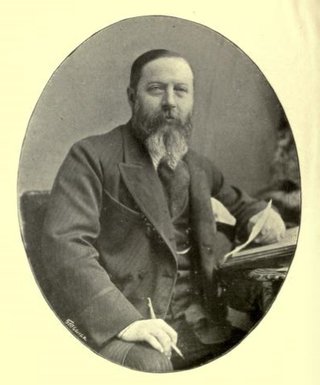
William Stainton Moses was an English cleric and spiritualist medium. He promoted spirit photography and automatic writing, and co-founded what became the College of Psychic Studies. He resisted scientific examination of his claims, which have generally been demolished.
Thomas Henry Haddan (1814–1873) was an English lawyer and newspaper editor, known as originator of The Guardian, a High Church weekly newspaper.

Catherine Amy Dawson Scott was an English writer, playwright and poet. She is best known as a co-founder of International PEN, a worldwide association of writers. In her later years she became a keen spiritualist.

William Alexander Greenhill was an English physician, literary editor and sanitary reformer.
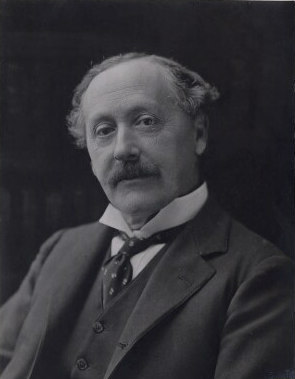
Herbert John Gladstone, 1st Viscount Gladstone, was a British Liberal politician. The youngest son of William Ewart Gladstone, he was Home Secretary from 1905 to 1910 and Governor-General of the Union of South Africa from 1910 to 1914.

Peter William Clayden was a British Nonconformist and Liberal journalist and author.

Frank Harrison Hill (1830–1910) was an English journalist.
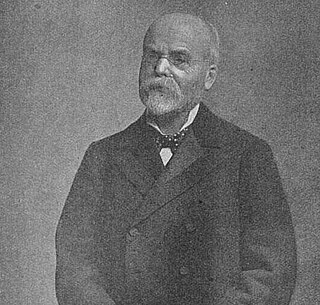
Sir John Richard Robinson was an English journalist, manager and editor of the Daily News.

Thomas Everitt (1823–1905) and Mrs Thomas Everitt (1825–1915) were prominent British spiritualists.

















